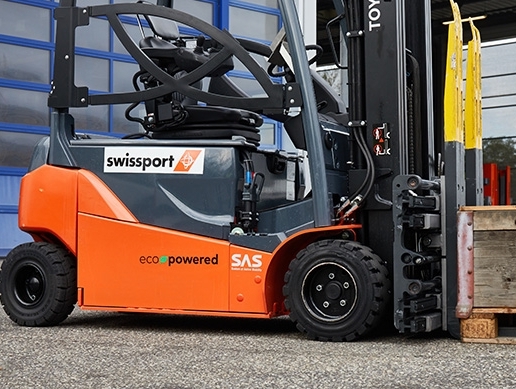
Swissport’s vehicle fleet to be 50% electric by 2025
Sep 16, 2019: Swissport has committed to increase the share of electric vehicles in its fleet to at least 50 percent by 2025, to further reduce its carbon footprint and to improve the direct working environment of its employees. The ground handling and cargo handling company, following the publication of its latest Sustainability Report, has […]

Sep 16, 2019: Swissport has committed to increase the share of electric vehicles in its fleet to at least 50 percent by 2025, to further reduce its carbon footprint and to improve the direct working environment of its employees.
The ground handling and cargo handling company, following the publication of its latest Sustainability Report, has also decided to reduce the use of fossil-fuel powered vehicles in favor of more efficient and environmentally friendly Ground Support Equipment, especially electrically powered vehicles (eGSE).
Between 2016 and 2018, Swissport increased the number of eGSE from 925 to 2,420 vehicles, among them electrical cargo lifters and battery-powered aircraft pushback tractors.
“As a signatory to the UN Global Compact, Swissport is committed to responsible business principles. We integrate sustainability into our decision-making,” said Eric Born, president & CEO of Swissport International AG.
“Ultimately, sustainable business contributes to positive results and to value creation, increasing our flexibility to invest in environmentally friendly equipment and in social matters. With our ambitious multi-year fleet modernisation programme, Swissport will further raise the share of electrically powered vehicles to at least 50 percent by 2025 and continue to reduce its carbon footprint.”
A statement from the company further informed that part of the total investment in state-of-the-art GSE is for the introduction of telematic systems into its global fleet.
Telematics optimise equipment utilisation and contribute to a reduction of the fuel consumption.
Highlighting the benefits of investing in eGSE, the company said it can reduce the consumption of fossil fuels and the carbon footprint by up to 40 percent at some airports, avoids harmful exhaust emissions and noise pollution and creates a healthier working environment for staff.
The company is currently preparing the implementation of a new group-wide environmental management system ready for 2020.

